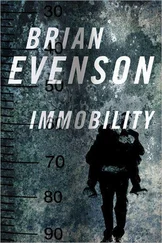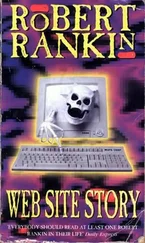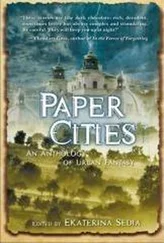FUGUE STATE: stories
Brian Evenson with art by Zak Sally
I am grateful to the editors of the following publications for providing space for the stories collected in this volume: Conjunctions “Younger,” “Desire with Digressions,” and “Girls in Tents” The Ninth Letter “A Pursuit” McSweeney’s “Mudder Tongue” Paraspheres “An Accounting” • Caketrain “Dread” • Mome “Dread” (illustrated version) • American Letters & Commentary “Wander” • New York Tyrant “Ninety Over Ninety” • Black Clock “Invisible Box” • Quarterly West “The Third Factor” • Fourteen Hills “Bauer in the Tyrol” • Bombay Gin “Helpful” • LIT “Life Without Father” • Columbia “Alfons Kuylers” • 3rd bed “Fugue State” • The Brooklyn Rail “Traub in the City” • “An Accounting” was reprinted in Best American Fantasy and in The Apocalypse Reader. “Fugue State” was reprinted in Text: UR. “Invisible Box” was reprinted in Awake! A Reader for the Sleepless and, in French translation, in Inculte. “Bauer in the Tyrol” was reprinted in the New Standards anthology, and “Traub in the City” in The Brooklyn Rail Fiction Anthology. “Mudder Tongue” was chosen for the O. Henry Prize Stories 2007 and was read by David Straitharn for Symphony Place’s Selected Shorts series.
I would also like to thank the Corporation of Yaddo, the MacDowell Colony, and the Camargo Foundation for providing me invaluable space and time to work, Gary Lutz for his meticulous reading of the manuscript, my editor Chris Fischbach, my agent Matt McGowan. Most of all, thanks to Joanna, Valerie, Sarah, and Ruby for their love and support.
The scroll of the night sky seemed to roll back, showing a huge blood-dusky presence looming enormous, stooping, looking down, awaiting its moment.
— D. H. LAWRENCE, “The Border Line”

Years later, she was still calling her sister, trying to understand what exactly had happened. It still made no sense to her, but her sister, older, couldn’t help. Her sister had completely forgotten — or would have if the younger sister wasn’t always reminding her. The younger sister imagined, each time she talked to her sibling on the telephone, each time she brought the incident up, her older sister pressing her palm against her forehead as she waited for her to say what she had to say, so that she, the older sister, the only one of the sisters with a family of her own, could politely sidestep her inquiries and go back to living her life.
Her older sister had always managed to do that, to nimbly sidestep anything that came her way so as to simply go on with her life. For years, the younger sister had envied this, watching from farther and farther behind as her older sister sashayed past those events that an instant later struck the younger sister head-on and almost destroyed her. The younger sister was always being almost destroyed by events, and then had to spend months desperately piecing herself together enough so that when once again she was struck head-on, she would only be almost destroyed rather than utterly and completely destroyed.
As her mother had once suggested, the younger sister felt things more intensely than anyone else. At the time, very young, the younger sister had seen this as a mark of emotional superiority, but later she saw it for what it was: a serious defect that kept her from living her life. Indeed, as the younger sister reached first her teens and then her twenties, she came to realize that people who felt things as intensely as she were either institutionalized or dead.
This realization was at least in part due to her father having belonged to the first category (institutionalized) and her mother to the second (dead by suicide) — two more facts that her older sister, gliding effortlessly and, quite frankly, mercilessly, through life, had also sidestepped. Indeed, while the younger sister was realizing to a more and more horrifying degree how she was inescapably both her mother’s and her father’s child, her older sister had gone on to start a family of her own. It was like her older sister had been part of a different family. The younger sister could never start a family of her own — not because, as everyone claimed, she was irresponsible but because she knew it just brought her one step closer to ending up like her mother and father. It was not that she was irresponsible, but only that she was terrified of ending up mad or dead.
The incident had occurred when their parents were still around, before they were, in the case of the mother, dead and, in the case of the father, mad. There were, it had to be admitted in retrospect, signs that things had gone wrong with their parents, things her older sister must have absorbed and quietly processed over time but which the younger sister was forced to process too late and all at once. The incident, the younger sister felt, was the start of her losing her hold on her life. Even years later, she continued to feel that if only she could understand exactly what had happened, what it all meant, she would see what had gone wrong and could correct it, could, like the older sister, muffle her feelings, begin to feel things less and, in the end, perhaps not feel anything at all. Once she felt nothing, she thought, knowing full well how crazy it sounded, she could go on to have a happy life.
But her older sister couldn’t understand. To her older sister, what the younger sister referred to as the incident was nothing — less than nothing, really. As always, her older sister listened patiently on the other end of the line as the younger sister posed the same questions over again. “Do you remember the time we were trapped in the house?” she might begin, and there would be a long pause as her older sister (so the younger sister believed) steeled herself to go through it once more.
“We weren’t trapped exactly,” her older sister almost always responded. “No need to exaggerate.”
But that was not how the younger sister remembered it. How the younger sister remembered it was that they were trapped. Even the word trapped did not strike her as forceful enough. But her older sister, as always, saw it as her role to calm the younger sister down. The younger sister would make a statement and then her older sister would qualify the statement, dampen it, smooth it over, nullify it. This, the younger sister had to admit, did calm her, did make her feel better momentarily, did made her think, Maybe it isn’t as bad as I remembered. But the long-term effect was not to make her feel calmer but to make her feel insane, as if she were remembering things that hadn’t actually happened. But if they hadn’t happened the way she remembered, why was she still undone more than twenty years later? And as long as her sister was calming her, how was she ever to stop feeling undone?
No, what she needed was not for her sister to calm her, not for her sister, from the outset, to tell her there was no need to exaggerate. But she could not figure out how to tell her sister this — not because her older sister was unreasonable but because she was all too reasonable. She sorted the world out rationally and in a way that stripped it of all its power. Her older sister could not understand the effect of the incident on the younger sister because she, the older sister, had not let it have an effect on her.
Читать дальше













